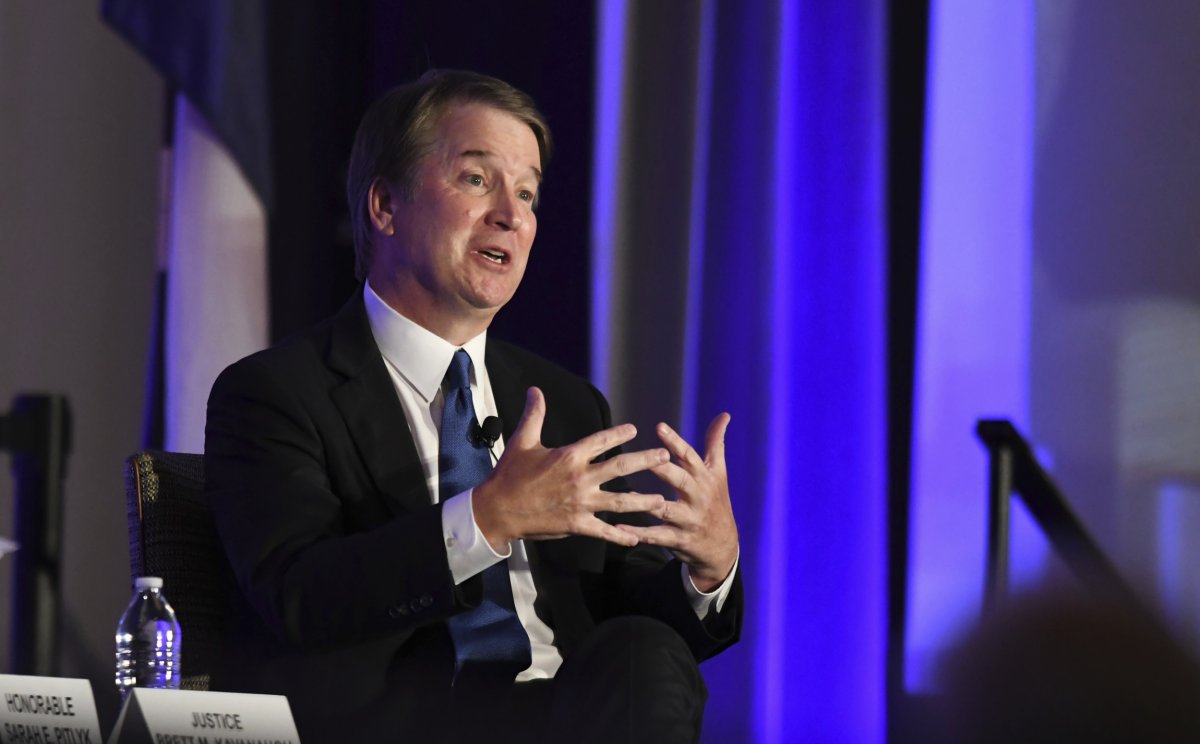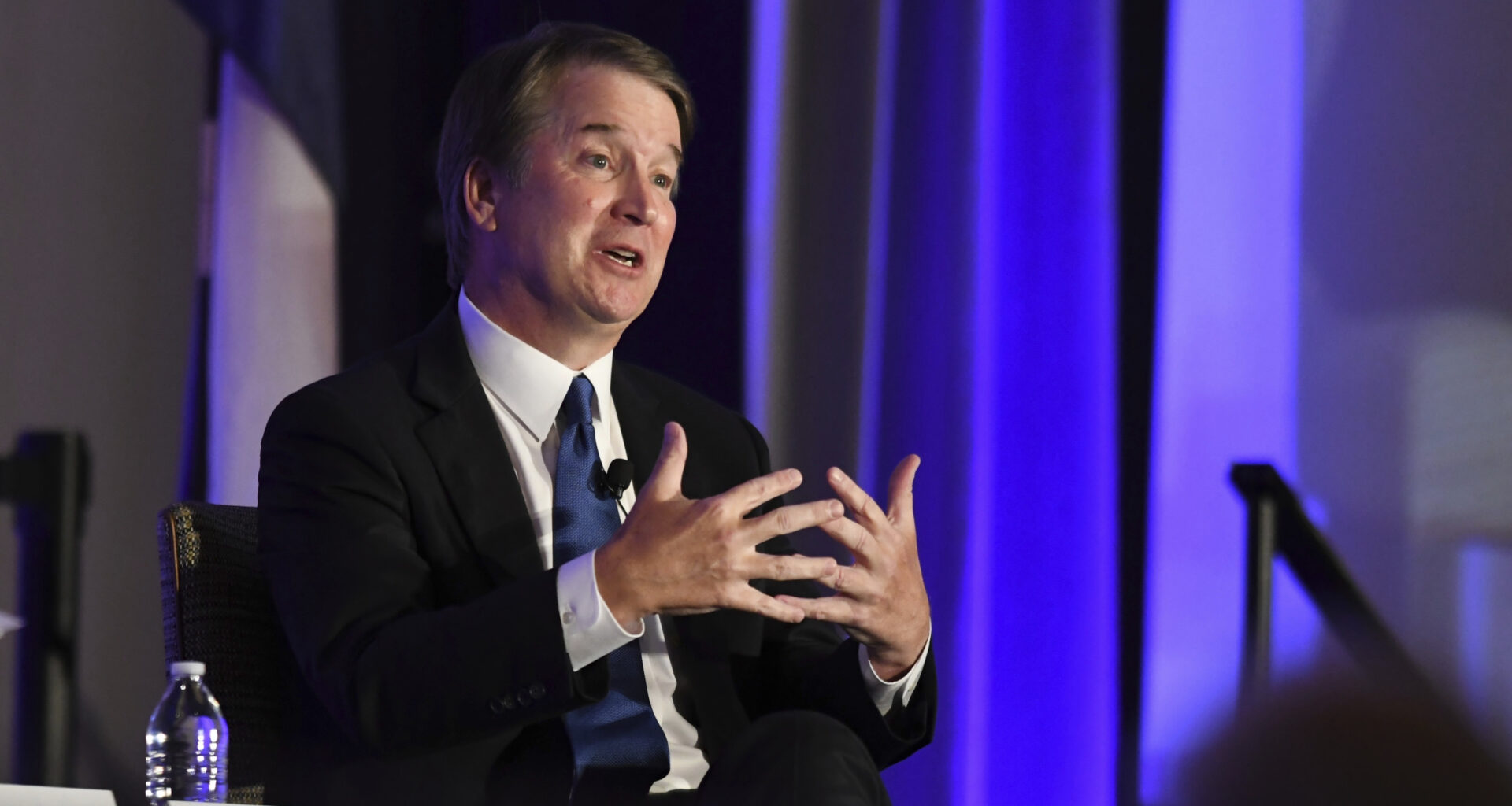The Supreme Court on Thursday allowed Mississippi to enforce a social media age-verification law for now, rejecting an emergency bid from tech industry group NetChoice to block the measure.
The brief, unsigned order drew no noted dissents, but Justice Brett Kavanaugh wrote separately that the law will likely ultimately be found unconstitutional.
Kavanaugh wrote, “In short, under this Court’s case law as it currently stands, the Mississippi law is likely unconstitutional. Nonetheless, because NetChoice has not sufficiently demonstrated that the balance of harms and equities favors it at this time, I concur in the Court’s denial of the application for interim relief.”

Supreme Court Justice Brett Kavanaugh speaks at a panel at the Eighth Circuit Court Judicial Conference on Thursday, July 31, 2025, in Kansas City, Missouri.
Supreme Court Justice Brett Kavanaugh speaks at a panel at the Eighth Circuit Court Judicial Conference on Thursday, July 31, 2025, in Kansas City, Missouri.
Associated Press
Why It Matters
The decision marks a procedural setback for companies like Facebook, X and YouTube, which argue the law violates privacy and free speech rights. Paul Taske, co-director of the NetChoice Litigation Center, called the decision “an unfortunate procedural delay.”
“Although we’re disappointed with the Court’s decision, Justice Kavanaugh’s concurrence makes clear that NetChoice will ultimately succeed in defending the First Amendment — not just in this case but across all NetChoice’s ID-for-Speech lawsuits,” Taske said.
Similar legal battles are playing out nationwide as states move to regulate children’s access to social media. Researchers say the use of social media is associated with an increase in depression and anxiety among young people.
What To Know
NetChoice represents multiple high-profile technology companies, including Google, which owns YouTube; Snap Inc., the parent company of Snapchat; and Meta, the parent company of Facebook and Instagram.
The company is challenging Mississippi Attorney General Lynn Fitch over the Walker Montgomery Protecting Children Online Act, which requires social media users to verify their ages before using the platform.
Fitch and counsel argued in a brief that the law regulates “sexual abuse, trafficking, physical violence, sextortion, and more,” which are not protected by the First Amendment.
U.S. District Judge Sul Ozerden issued a preliminary injunction blocking the law in 2024. The 5th Circuit Court of Appeals ruled in July of this year that the law could be enforced while the lawsuit proceeds.
What People Are Saying
Justice Brett Kavanaugh, in an opinion: “To be clear, NetChoice has, in my view, demonstrated that it is likely to succeed on the merits—namely, that
enforcement of the Mississippi law would likely violate its members’ First Amendment rights under this Court’s precedents.”
Attorneys for NetChoice, in an emergency application: “This law would stifle the internet’s promise of ‘relatively unlimited, low-cost capacity for communication of all kinds,’ by requiring users to jump through substantial barriers to accessing speech that this Court—not to mention numerous courts across the country—have held unconstitutional in a variety of contexts.”
Mississippi Attorney General Lynn Fitch and counsel, in a response: “The Act requires what any responsible covered platform would already do: make ‘commercially reasonable’ efforts to protect minors—not perfect or cost-prohibitive efforts, but efforts of reasonable care based on a platform’s resources.”
What Happens Next
The law will remain in effect as the lawsuit proceeds.
This article includes reporting by the Associated Press.
Do you have a story that Newsweek should be covering? Do you have any questions about this story? Contact LiveNews@newsweek.com.
Update 8/14/25, 5:19 p.m. ET: This article was updated with additional information.

